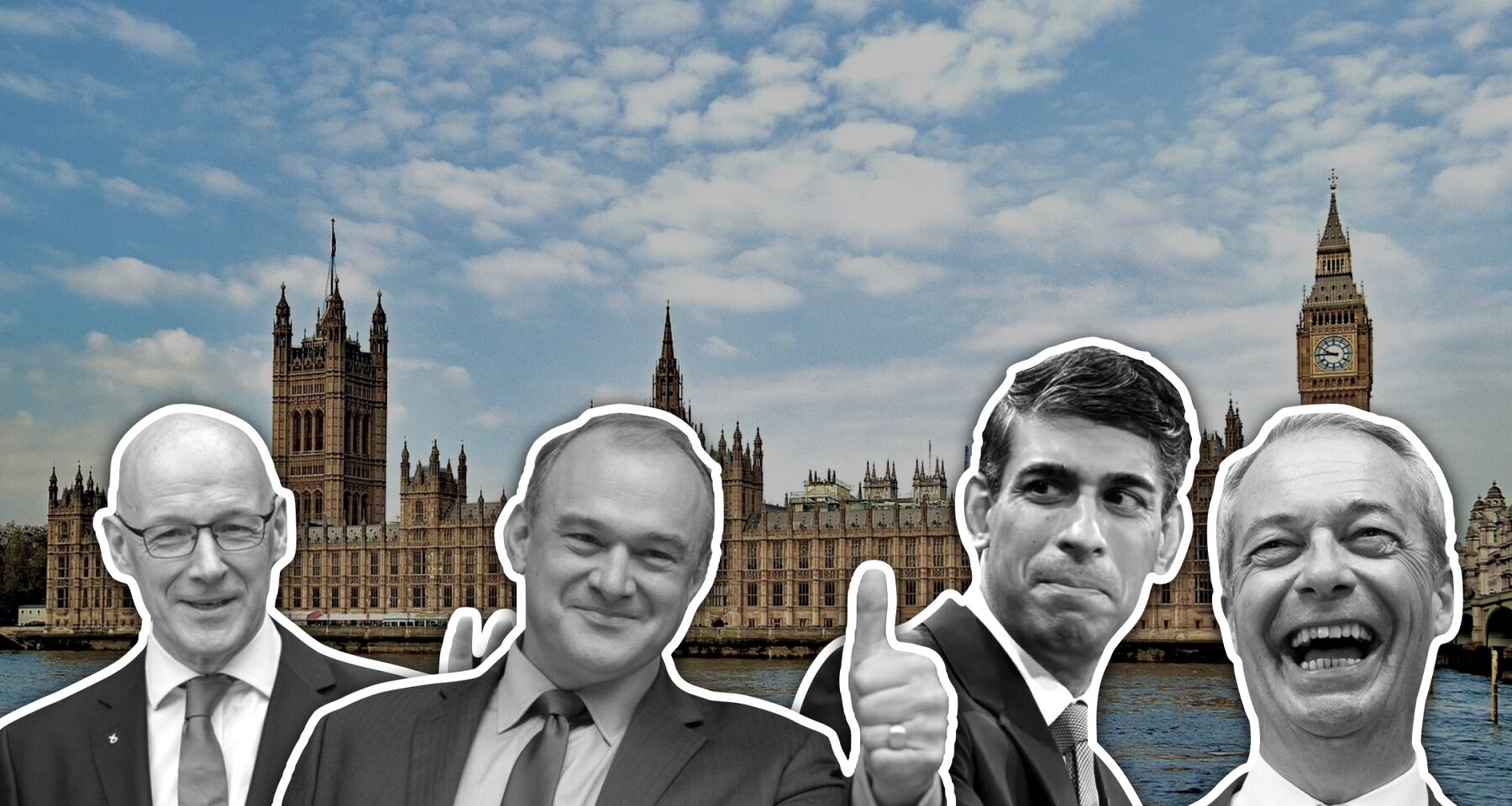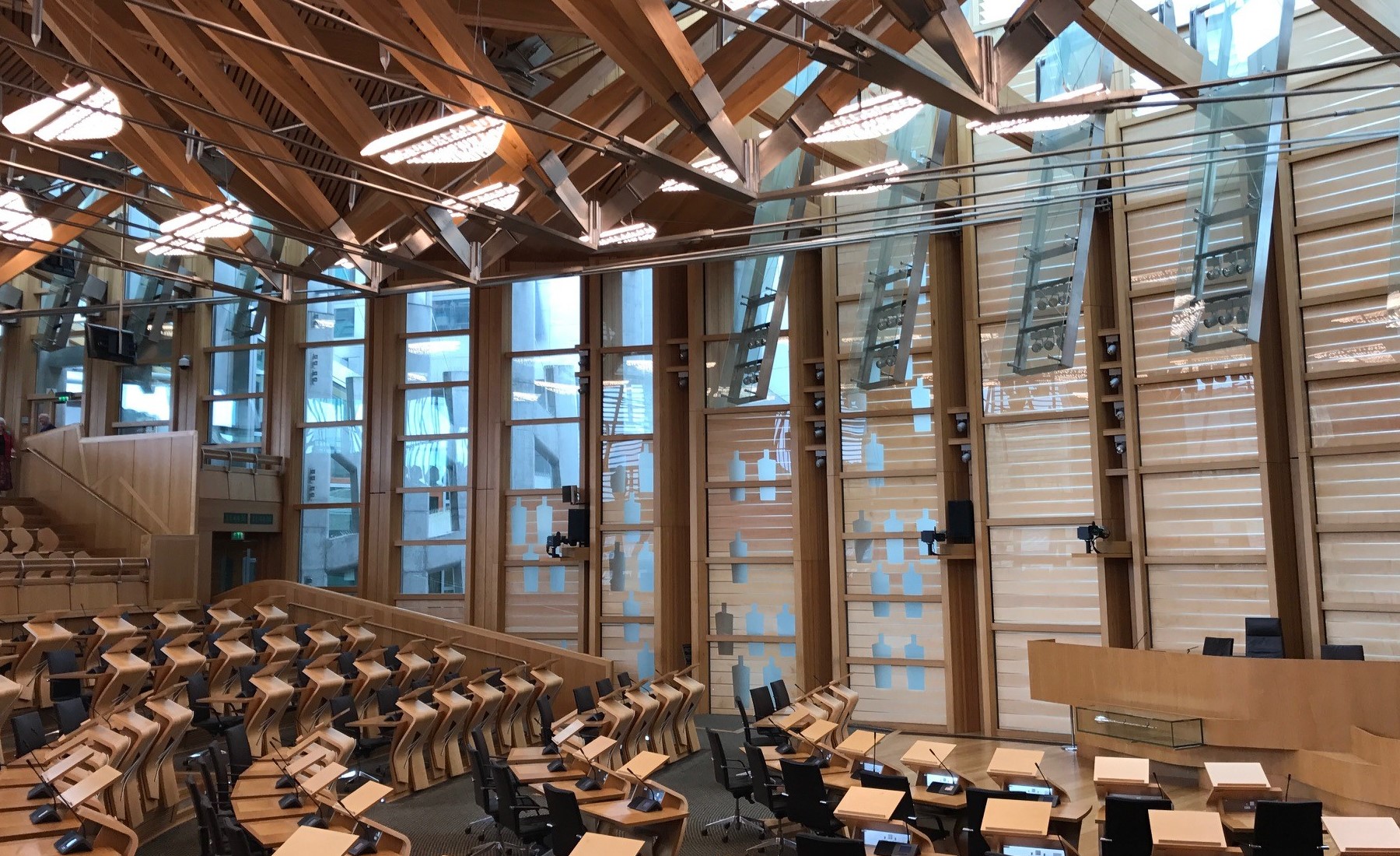The ones who didn’t win: opposition at Westminster
With Labour’s landslide majority win at the 2024 General Election, where does this leave the other parties, vying for influence in the House of Commons and beyond?
The Conservatives
The biggest defeat the Tories have ever had, falling from the party of government with an 80-seat majority, to just 121 MPs. In the process, election night saw Jacob Rees-Mogg, Penny Mordaunt, and Liz Truss (to name a few) lose their seats.
However, despite some polls suggesting third place or worse for the Conservatives, they’ve managed to remain the second largest party in the Commons, and therefore the Official Opposition (or, correctly, His Majesty’s Most Loyal Opposition, if you don’t mind). This gives whoever comes next as Tory leader a centre stage spot at Prime Minister’s Questions (and other parliamentary statements) for example.
The end of 14 years in government also spells an end to Rishi Sunak’s relatively short time as prime minister and Conservative leader (less than two years). The Conservative Party will now enter a leadership contest (they’re quite used to them at this point), which will likely style itself as a campaign for the soul of the party; what kind of party are they? What are modern conservative values?
Will they lean further to the right, to compete with Nigel Farage’s Reform UK space? Or will they see a future in challenging Starmer’s new-styled Labour Party and the Liberal Democrats for the centre ground? Traditionally, it’s the centre ground that wins UK elections, but Labour and the Tories have a habit of swinging to the left and right (respectively) after an election defeat.
The Liberal Democrats
Lib Dem leader Ed Davey appeared to have the time of his life during his election campaign, from paddle boarding, to water slides, to bungee jumping. The party suffered electoral punishment from voters following the 2010-2015 coalition government they entered with David Cameron’s Conservatives. This election result would suggest they’ve been all but forgiven, increasing their seat share from 11 to 72, a record-breaking result for their party.
This puts them in third place for the first time since they were overtaken for this position by the SNP in 2015. The third party in the Commons comes with guaranteed questions at Prime Minister’s Questions (PMQs) and taking a more prominent role in responding to ministerial statements in the Commons. The significant increase in seats for the Lib Dems will see an even greater funding package for their MP group, known as ‘short money’; additional funding to employ central staff (researchers, a press office, etc) to support the Lib Dem’s work in Westminster.
While they’re working in a parliament where Labour has an overwhelming majority, the Lib Dems may not have much say over policy or legislation, but they’ll certainly have better resources to make their voices heard over the next five years.
The Scottish National Party (SNP)
An expected but severe defeat for the SNP, which has been the party of government in Scotland since 2007. Having had 48 MPs elected in the 2019 election, the party is now down to just nine. Notably, Alison Thewliss, Alyn Smith, and Joanna Cherry lost their seats as Labour swept almost all of the Scottish central belt.
Having been SNP leader for just two months, it’s highly unlikely the party membership will lay much blame at first minister John Swinney’s door for the disappointing electoral outcome. The SNP had been the subject of a series of scandals in the couple of years leading up to the general election, and it was highly anticipated Labour would make electoral gains north of the border. Though the scale of the Labour advance, and SNP defeat, surprised even some of the most optimistic/pessimistic (whichever side you’re looking at it from) predictions.
The SNP’s situation is the inverse of the one the Liberal Democrats find themselves in. They no longer will have a guaranteed spot at PMQs, and fewer MPs in their cohort means less short money for researchers and other support staff (falling from over £1.3 million, to around £250,000).
Meantime, Swinney, his Cabinet, and his MSPs (Members of the Scottish Parliament) will be hoping the shine rubs off Labour in time for the 2026 Scottish Parliament election, where Scottish Labour leader Anas Sarwar fancies his chances of taking over following what would be 19 years of SNP government.
Reform UK
Nigel Farage’s Brexit Party, under a different name. Reform UK rose to popularity in an incredibly short space of time, tapping into dissatisfaction with the Conservative Party among right-wing voters.
With their 14% overall vote share, mostly concentrated in regions of England, Reform UK managed to win five seats, electing Nigel Farage himself for the first time to the House of Commons.
Numerically they’re a small force in Parliament and will be highly unlikely to influence policy on a majority Labour government. But Farage is a performer and skilled orator. Reform UK will at the very least be a noisy minority, if nothing else.
Elsewhere:
- The Green Party of England and Wales increased the number of seats they hold from one to four.
- Sinn Fein retained seven seats, though will abstain from taking part in the Westminster parliament.
- Six independent MPs were elected, including former Labour leader Jeremy Corbyn.
- The DUP lost three seats, returning five MPs.
- Plaid Cymru won four seats in Wales, an increase of two.
- The SDLP retained two seats in Northern Ireland.
- Alliance, the UUP, and the TUV all won a seat each in Northern Ireland.
More from the 3x1 blog
Will Kemi Badenoch be the next prime minister?
Programme for Government analysis: a lack of ambition for Scotland
Award-winning, results driven strategic communications for the public, private and third sectors, from corporate and consumer PR to employee engagement.
Invaluable insight and intelligence from across the Scottish and UK political landscape and professional advice on engaging influential stakeholders.
Creative, engaging and measurable digital and social media marketing that drives online conversations, builds brand loyalty and generates sales.





